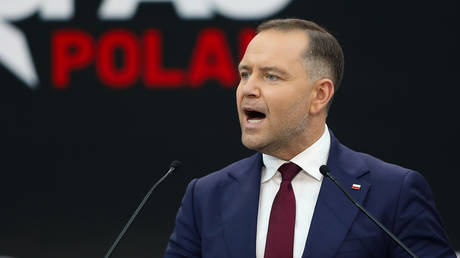
Sweeping changes are rocking the company, with transgender and non-binary themes now unavailable on its messenger
Mark Zuckerberg’s Meta Platforms has ended diversity, equity, and inclusion (DEI) programs, with the changes relevant to transgender and non-binary employees reportedly already being felt across the offices of the Facebook, Instagram, and WhatsApp owner.
The policy alterations began late on Thursday, shortly after the move was announced via an internal memo. For instance, managers at offices in Silicon Valley, Texas, and New York have been instructed to remove tampons from men’s bathrooms, previously provided by the company for transgender and nonbinary employees, the New York Times reported, citing two Meta employees.
The company has also reportedly removed the nonbinary and transgender themes from its messenger chat app, while access to DEI policies and training manuals was locked on Meta’s internal network.
A U-turn on the company’s DEI-based hiring process, which had taken racial and gender background into account, was first reported earlier on Friday by Axios, which obtained the memo sent to staffers by Janelle Gale, Meta’s vice president of human resources.
“The legal and policy landscape surrounding diversity, equity, and inclusion efforts in the United States is changing,” the memo reads. “The term ‘DEI’ has also become charged, in part because it is understood by some as a practice that suggests preferential treatment of some groups over others.”
The company will instead “focus on how to apply fair and consistent practices that mitigate bias for all, no matter your background.”
Earlier this week, the company pledged to “dramatically reduce the amount of censorship.” In a video address, Zuckerberg promised to “get rid of factcheckers and replace them with community notes” similar to Elon Musk’s X. Meta’s CEO admitted the “factcheckers have just been too politically biased and have destroyed more trust than they’ve created,” announcing that the company’s content moderation teams were set to move from California to Texas “where there is less concern about the bias of our teams.”




